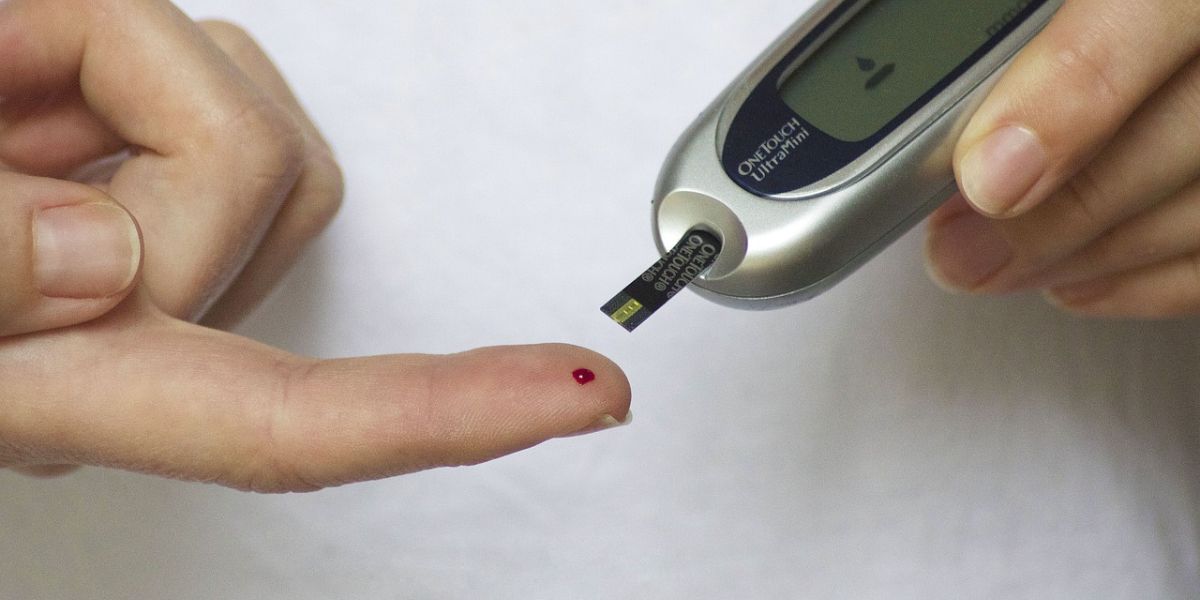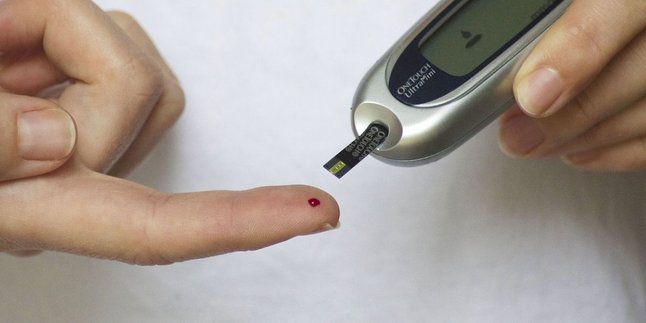Kapanlagi.com - Diabetes mellitus, a chronic disease characterized by high blood sugar levels, has become a serious health challenge worldwide. In Indonesia, the prevalence of diabetes is quite alarming. According to the Basic Health Research (RISKESDAS) 2018 data, the incidence of periodontitis reached 74.1 percent, and diabetes is one of its main causes.
Effective management of diabetes is crucial, including the use of the right and regular medications. Diabetes medications play a vital role in controlling blood sugar levels and preventing organ damage that can have fatal consequences in the long term. There are various types of diabetes medications, ranging from oral medications to injections (insulin).
The choice of medication type greatly depends on the type of diabetes (type 1 or type 2), individual health conditions, and response to the treatment given. Therefore, consulting a doctor is a very important step in determining the appropriate and safe treatment. Remember, never start or stop diabetes medication without professional medical supervision.
This article will thoroughly discuss the various types of diabetes medications, the correct way to consume them, and the serious consequences that may occur if you neglect diabetes treatment. This information is educational and not a substitute for medical advice. Always consult with your doctor to get a treatment plan that suits your health condition.
Check out the complete information summarized by Kapanlagi.com from various sources, Tuesday (15/4/2025).
1. Types of Diabetes Medications (Oral Antidiabetic Medications)
Treatment for type 2 diabetes often begins with various oral medications, each with a unique mechanism of action that is important to understand for effective and safe treatment. One of the most common classes of medications is Biguanides, with Metformin as its star.
Metformin works by reducing glucose production in the liver and increasing insulin sensitivity, with doses adjusted based on the patient's condition.
Additionally, there is the Sulfonylurea class, such as glimepiride and glibenclamide, which stimulates the pancreas to produce more insulin, but one must be cautious of the risk of hypoglycemia.
Equally interesting, the Meglitinide class, such as repaglinide, offers rapid and effective insulin stimulation after meals. Meanwhile, Acarbose from the Alpha-Glucosidase Inhibitor class works by inhibiting glucose absorption in the intestines, and SGLT-2 Inhibitors like dapagliflozin help excrete glucose through urine.
Moreover, DPP-4 Inhibitors, such as sitagliptin, increase incretin hormone levels for better blood sugar control without significant risk of hypoglycemia.
Lastly, Pioglitazone from the Glitazone class increases insulin sensitivity, although its side effects should be monitored. Each of these medication classes has characteristics and side effects that need to be discussed with a doctor to ensure appropriate and safe treatment for diabetes patients.
2. Proper Way to Consume Diabetes Medication
The right time to take diabetes medication is crucial to maximize its efficacy and minimize unwanted side effects.
Each type of medication has its own rules: for example, sulfonylureas and meglitinides should be taken 15-30 minutes before meals to be effective when blood sugar levels start to rise.
Meanwhile, metformin and alpha-glucosidase inhibitors are better taken with or after meals to enhance absorption and reduce irritation in the gastrointestinal tract.
There are also medications like SGLT-2 inhibitors, DPP-4 inhibitors, and glitazones that can be taken flexibly, either with or without food, providing convenience for patients with irregular eating patterns.
However, despite the flexibility, it is important to continue following the doctor's recommendations and regularly check for potential side effects. Do not hesitate to consult if you have questions or issues during treatment!
3. The Impact of Irregular Diabetes Medication Intake
Taking diabetes medication regularly is not just a recommendation, but a necessity that cannot be ignored for long-term health.
Non-compliance with treatment can trigger dangerous fluctuations in blood sugar levels, such as hyperglycemia or hypoglycemia, which can disrupt daily activities and lower quality of life.
In the medium term, this condition can lead to chronic fatigue and digestive disorders, as well as increase the risk of infections.
However, the most concerning impacts emerge in the long term, where damage to vital organs can occur, increasing the risk of heart attacks, strokes, and even blindness.
With all these risks, maintaining a healthy lifestyle and regularly consulting with a doctor becomes a crucial step in preventing serious diabetes complications.
4. Diabetes Medication for Patients with Kidney Disorders
For patients with kidney disorders, choosing diabetes medication is not a trivial matter.
Metformin, for example, should be avoided or its dosage adjusted according to kidney function. The same goes for other medications, which may require dosage adjustments or even complete avoidance.
Regular monitoring of kidney function is key for those taking diabetes medication, making consultation with a kidney specialist and a diabetes doctor crucial.
Proper dosage adjustments not only maintain blood sugar levels but also prevent complications that could potentially harm the kidneys.
5. Diabetes Medications for Patients with Heart Disease
Diabetes medications such as SGLT-2 inhibitors have shown remarkable benefits for patients who also suffer from heart disease, while other medications like glitazones may actually increase the risk of fluid retention, so they should be avoided by those with heart problems.
Therefore, PERKENI emphasizes the importance of consulting with a doctor to find the right and safe treatment for patients with both conditions.
When choosing diabetes medications, it is crucial to consider heart health to avoid dangerous complications. Additionally, regular monitoring of heart conditions is key for patients battling both heart disease and diabetes.
6. When Can Diabetes Medication Be Stopped?
Diabetes treatment often becomes a part of a person's life journey, but there are times when new hope arises through diabetes remission, whether partial, total, or long-term.
This remission is marked by blood sugar levels returning to normal for at least one year without medication assistance. While it may be tempting to stop treatment, this decision should be made carefully and always involve a doctor after a thorough evaluation.
It is important to continue monitoring blood sugar levels and health periodically after treatment is stopped, as your safety is paramount. Remember, never take this step without consulting a healthcare professional!
7. Tips for Improving Adherence to Diabetes Medication
Improving adherence to diabetes medication can be done in various engaging ways! From utilizing reminders on your phone to creating a regular weekly medication schedule, all of these can help.
Equally important, education about the benefits of medication adherence should be continuously enhanced, and good communication with healthcare providers can help address various challenges and potential side effects that may arise.
Additionally, support from family and the surrounding environment also plays a crucial role in encouraging the motivation to remain compliant with treatment.
8. Holistic Diabetes Management
Effectively managing diabetes requires a comprehensive approach, including a balanced diet, regular exercise, blood sugar monitoring, and attention to foot health. Nutritional therapy such as Diabetasol can help maintain stable blood sugar levels.
Preventing complications is crucial for improving quality of life, so regular consultations with a doctor should not be overlooked. The use of diabetes medications is also vital for controlling blood sugar levels and preventing serious issues. Non-compliance with medication can have fatal consequences.
Therefore, consulting with a doctor to determine the appropriate treatment and adhering to medication guidelines is very important.
A comprehensive diabetes management plan that combines medication, a healthy diet, exercise, and regular monitoring is key to better health. Always ensure to consult with a doctor for an accurate diagnosis and suitable treatment plan.
(kpl/rao)
Disclaimer: This translation from Bahasa Indonesia to English has been generated by Artificial Intelligence.












